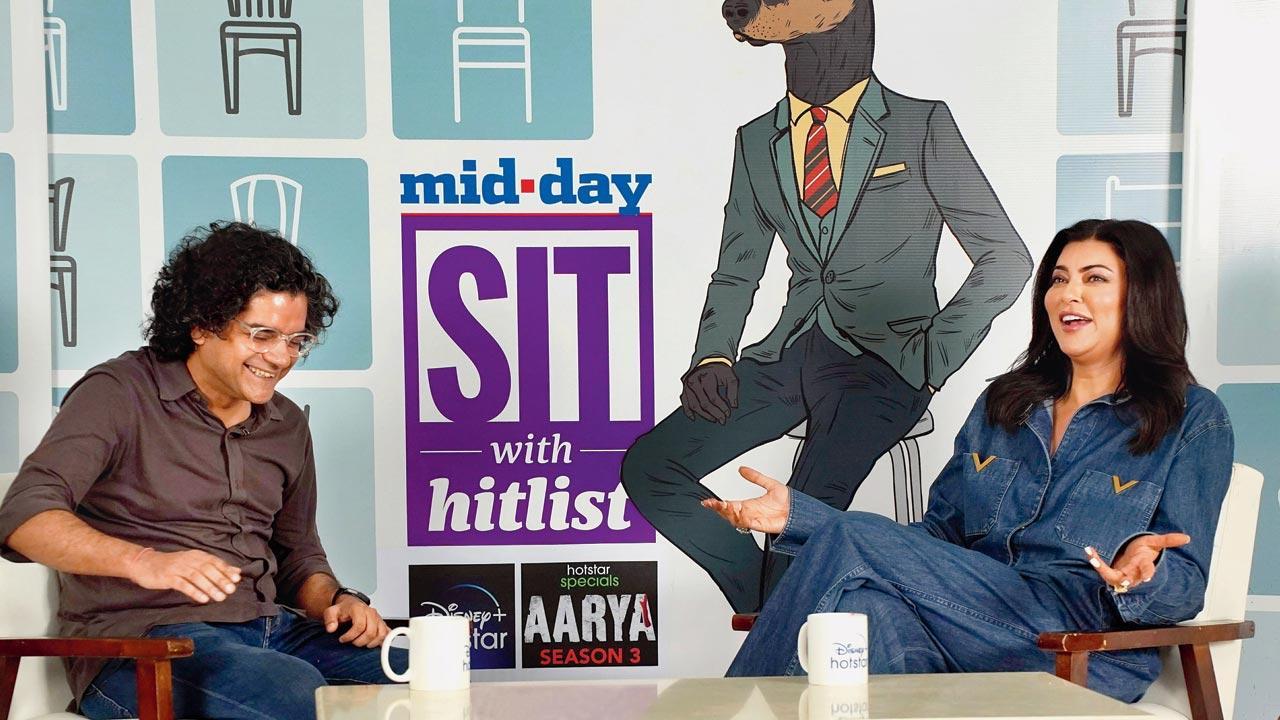Home / Entertainment / Bollywood News / Article /
Miss Universe, forever!
Updated On: 18 November, 2023 05:07 AM IST | Mumbai | Mayank Shekhar
Sushmita makes sense of stardom, relationships, and a second life, including in showbiz…
Listen to this article :

Sushmita Sen with mid-day’s entertainment editor Mayank Shekhar at the latest edition of Sit with Hitlist. Pics/Aishwarya Deodhar
 If you were to play word-association, probably anywhere in the sub-continent, the word that would come immediately with Miss Universe is: Sushmita Sen.
If you were to play word-association, probably anywhere in the sub-continent, the word that would come immediately with Miss Universe is: Sushmita Sen.
Twenty-nine women on the planet have been crowned since her. Yet, as we introduce her in this conversation to a live audience, Miss Universe rightly shows up on top. Do you ever stop being Miss Universe?
Read Next Story



